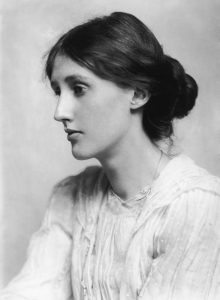On March 28, 1941, shortly after the gruesome onset of WWII, Virginia Woolf filled the pockets of her overcoat with rocks, treaded into the River Ouse behind the house in East Sussex where she lived with her husband, author and political theorist Leonard Woolf, and drowned herself. She had succumbed to a relapse of the all-consuming depression she had narrowly escaped in her youth. Once news of her death broke, an outpouring of condolence letters captured the enormous collective grief, mourning at once the deeply personal emptiness left behind by a remarkable woman and a loyal friend, and the severe cultural loss of a brilliant mind and a transcendent artist. The most moving of these letters are collected in Afterwords: Letters on the Death of Virginia Woolf , edited by University of Sussex researcher Sybil Oldfield — a rousing monument to Woolf’s legacy as an author, humanist, and tireless exponent of the inner light of being.
relapse of the all-consuming depression she had narrowly escaped in her youth. Once news of her death broke, an outpouring of condolence letters captured the enormous collective grief, mourning at once the deeply personal emptiness left behind by a remarkable woman and a loyal friend, and the severe cultural loss of a brilliant mind and a transcendent artist. The most moving of these letters are collected in Afterwords: Letters on the Death of Virginia Woolf , edited by University of Sussex researcher Sybil Oldfield — a rousing monument to Woolf’s legacy as an author, humanist, and tireless exponent of the inner light of being.
On April 4, the amazing British poet Edith Sitwell reached out to Leonard Woolf and shared in the mourning:
No words can express our feelings at this dreadful heartrending thing. We are absolutely
overcome. … It cannot help you in the least to know how many people must be feeling a desperate sense of loss. I know that we do, here, — but that does not help you in the least. Nothing can.
Perhaps the day will come when we shall think, ‘At least she was spared seeing people sink lower and lower, and all the new desecrations and shames;’ but at the moment that doesn’t help at all.
When I think of that noble and high spirit and mind!
There isn’t anything one can say, and one must not intrude on your sorrow. But all my life I shall remember the feeling of light, and of happiness, that she gave one. As a person, as well as in her art. Everything seemed worth while, important, and beautiful.
